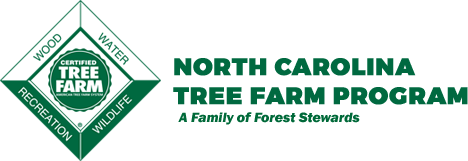Maintaining Records
Whether you use a shoe box or a well-organized journal, it’s important that you establish a system for tracking your management activities and saving associated documentation. Keep important records such as your property deed and map, contracts, contractors’ proof of insurance, receipts, warranties and permits where you can easily find and reference them. Good records are essential for demonstrating compliance with ATFS certification standards and for reporting income and expenses for income tax purposes. They also can lead to better management decisions.
Learn more about the records you should keep and why you should keep them in the articles below. Be sure to consult your accountant, attorney and/or forester for information and advice specific to your property.
ATFS Standard 8, Indicator 8.1.3:
Landowners should retain appropriate contracts or records for forest product harvests and other management activities to demonstrate conformance to the Standards.
ATFS Standard 1, Indicator 1.1.3:
The Landowner should monitor for changes that could interfere with the management objectives as stated in management plan.
The Top Eight Documents Every Tree Farmer Should Keep (American Tree Farm System)
During his three decades as head of an accounting firm, Tree Farmer Bill Jordan learned the importance of keeping records. But what should you keep? Although each Tree Farm has its own unique paper trail, here are eight documents every Tree Farmer should hold on to.
Keeping Records of Forest Management Activities (Penn State Cooperative Extension)
This publication is primarily for landowners whose main source of income is not from the forested property. It introduces you to record-keeping, what to record and simple recording systems.
Setting up the Books: A Forest Owner’s Guide to Capital Accounts and Record-keeping for Federal Income (University of Tennessee)
Forest owners have a number of federal income tax incentives available to them that encourage timber production. This publication assists with the first steps toward taking full advantage of these incentives
Recordkeeping: A How-to-do-it Guide for Small Woodland Owners (Oregon State University Extension Service)
This document provides an introduction to record keeping and explains how to identify what information is valuable to record. It presents a simple record-keeping system and describes the categories of costs and revenues a woodland owner might use.
Preserving the Past: A Guide for North Carolina Landowners (NC State Forestry Extension)
As a landowner, you probably know of your responsibility to protect and preserve soil productivity, water quality, biological diversity, and wildlife habitat. But you may not be aware of other valuable resources potentially on your property: archeological artifacts, historic structures and landscapes, and culturally important vegetation. These are known collectively as cultural resources, and this publication will help you learn more about identifying, protecting, and conserving these resources on your land through the creation of a preservation plan.
